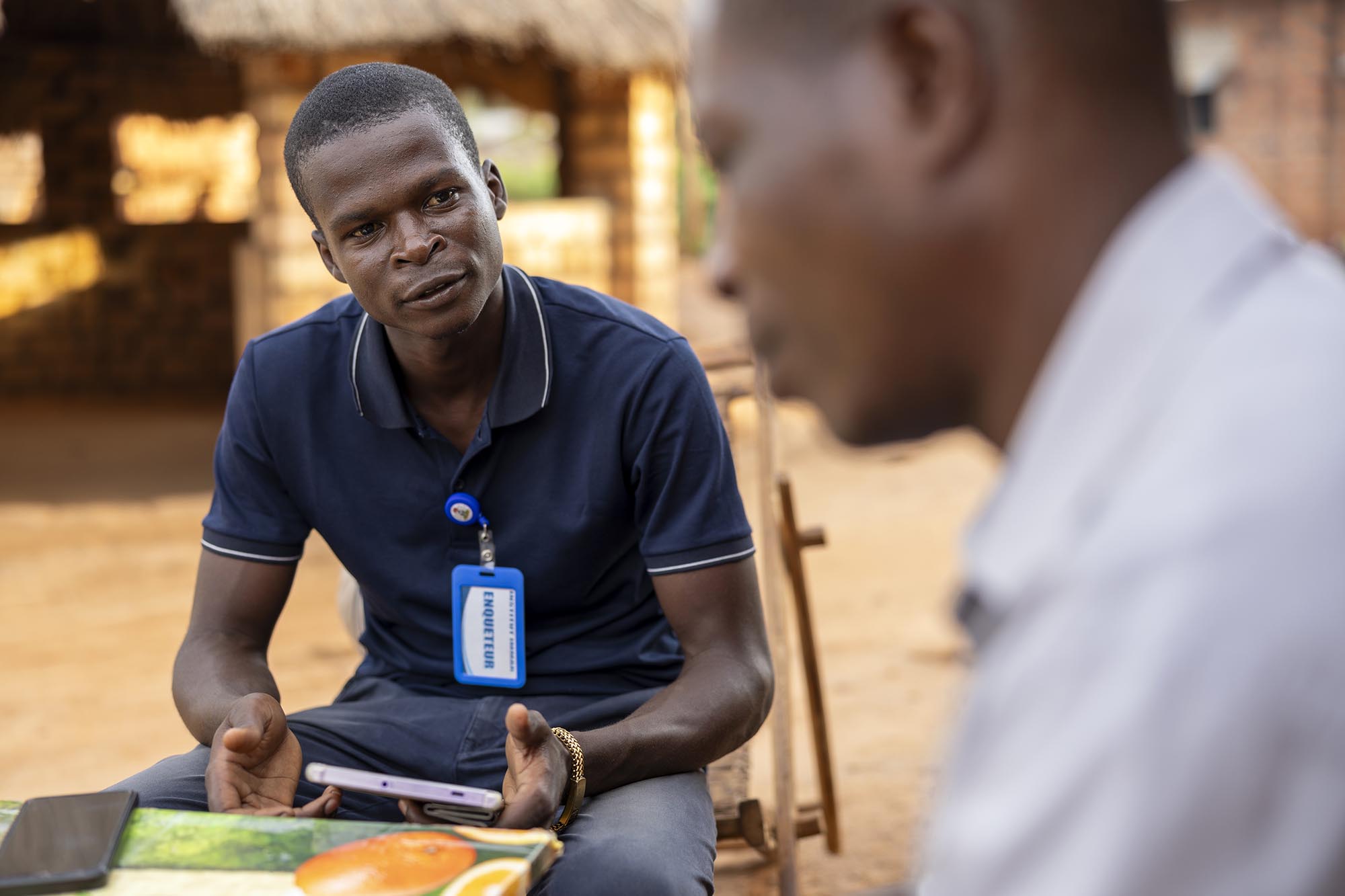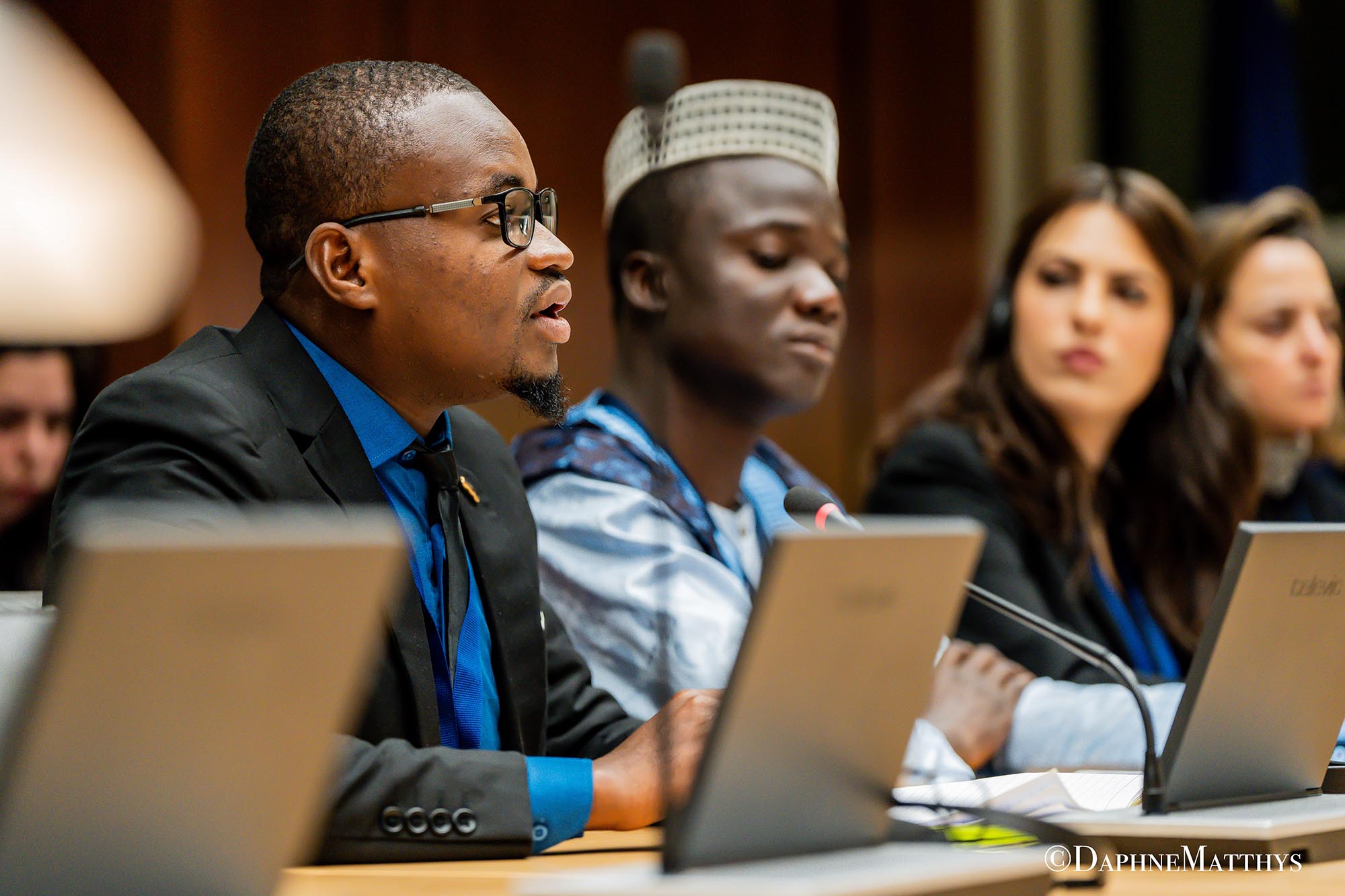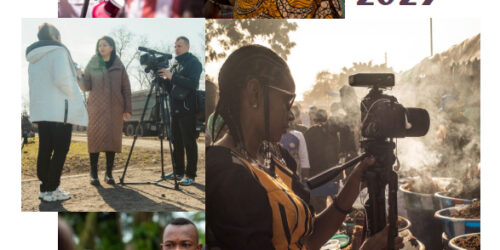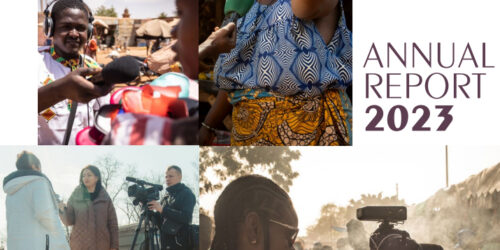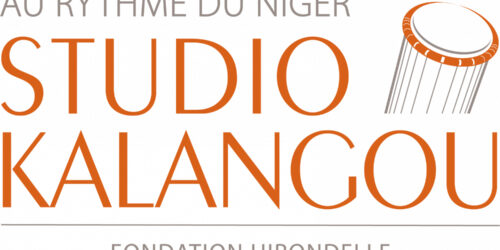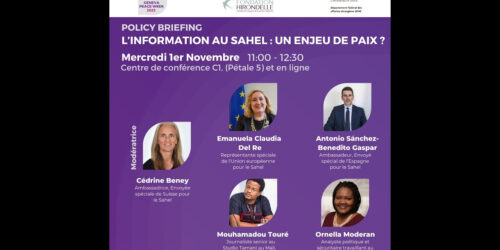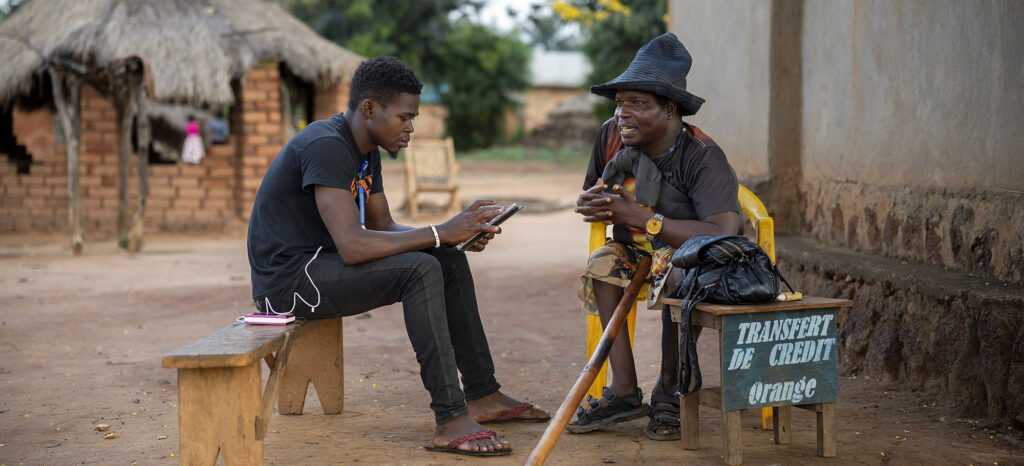
Knowing our audiences for greater impact
Fondation Hirondelle aims to be a learning organisation that adapts and improves its activities in response to objective information. For over a decade, we have worked closely with academics to measure the effects of our projects and tailor our news programmes to meet people’s needs.
What we do
Fondation Hirondelle analyses the impact of the media and news programmes that it creates and supports. We participate in research on the role of news and the media, including the parts they play in social cohesion and advancing the rights of the most vulnerable in crisis situations. In this way, we contribute to generating knowledge about situations, audiences, media actors and data that are too often overlooked or difficult to access.
Our objectives
- Understand information ecosystems (information needs and the way in which certain segments of the population access and share information).
- Improve the quality of media productions in order to better respond to our audiences’ needs and expectations.
- Define our theories of change and our monitoring indicators.
- Identify the impact of our programmes and report to funding providers.
- Contribute to the production and sharing of knowledge on providing support to media in fragile situations.
Methodology
To improve our understanding of the news ecosystems in which we operate and our impact on them, we apply different methods including large-scale audience surveys and quantitative impact studies, such as randomised controlled trials (RCT).
We also carry out qualitative studies based on data collected from focus groups (audience segments that meet before and after broadcasts), interviews and observations, or from the analysis of media content and speeches.
Our research work includes a digital innovation section which explores social media monitoring tools and the use of AI software to transcribe, translate and analyse on- and offline media productions.
Partnerships
Our research is carried out in partnership with national and international experts, most often academics, who add value through their academic independence, methodological rigour and analytical skills. For its part, Fondation Hirondelle facilitates access to media actors and audiences in the field, including those in the most remote areas.
Publications
1. Research to measure the effects and scope of our work
- Audience studies
- Central African Republic: (Dis)information in a crisis context (2021-2023)
- Central African Republic: (Dis)information in a crisis context: the case of Beloko (2021-2023)
- Dialogue programs and youth civic engagement (Madagascar, 2020-2022)
- Study of Studio Kalangou’s impact on women’s rights and empowerment in Niger (2019)
- Study on Studio Tamani’s coverage and its contribution to the peace process in Mali (2016)
2. Research to understand news ecosystems
- 2.1 Understanding audiences
- Audience studies
- Understanding the information needs of internally displaced persons (Burkina Faso, 2020 – 2021)
- Gender
- Radio and Women’s Empowerment in Francophone West Africa (2024)
- Radio and Social Media as A Two-Way Communication Tool in Conflict- and Pandemic-Affected Communities in Burkina Faso (2023)
- Reaching difficult communities: using WhatsApp to give a voice to conflict-affected populations (Mali, Niger and Burkina Faso, 2022)
- The importance of “noisy” and “silent” forms of public participation in community radio in Niger and Mali (2021)
- Promoting women’s independent voting through the media (Niger – 2021)
- Radio journalism and women’s empowerment in Niger (2020)
- Study of Studio Kalangou’s impact on women’s rights and empowerment in Niger (2019)
- The contribution of citizens’ perspectives to understanding women’s empowerment as a process of change: the case of Niger (2019)
- 2.2 Journalists and other information providers
- Study on sources and dissemination of information in the Nord-Kivu region (Democratic Republic of Congo, 2019)
- ‘Radio as usual’? Digital technologies and radio in conflict-Affected Burkina Faso (2023)
- Reaching difficult communities: using WhatsApp to give a voice to conflict-affected populations (Mali, Niger and Burkina Faso, 2022)
- Peace journalism: a tool for media development (2021)
- Evaluation of partnerships between universities and non-governmental media organizations for participatory data collection (Niger – 2021)
- The importance of “noisy” and “silent” forms of public participation in community radio in Niger and Mali (2021)
- The “contrôleuse”: recognising the role of the “Fixer” in academic and media NGO development partnerships (Burkina Faso, Mali, Niger – 2021)
- Translators on translation in media development projects in the Sahel (2020)
- The Use of Theories of Change in Media and Governance Programmes (2019)
3. Media sustainability
4. Disinformation, misinformation and malinformation
- Central African Republic: (Dis)information in a crisis context (2021-2023)
- Central African Republic: (Dis)information in a crisis context: the case of Beloko (2021-2023)
- Understanding the information needs of internally displaced persons (Burkina Faso, 2021)
- Study on sources and dissemination of information in the Nord-Kivu region (Democratic Republic of Congo, 2019)
5. Gender
- Radio and Women’s Empowerment in Francophone West Africa (2024)
- Radio as an environment for women’s empowerment in Mali (2021)
- Radio journalism and women’s empowerment in Niger (2020)
- Study of Studio Kalangou’s impact on women’s rights and empowerment in Niger (2019)
- The contribution of citizens’ perspectives to understanding women’s empowerment as a process of change: the case of Niger (2019)
6. Peace and conflict
- Central African Republic: (Dis)information in a crisis context (2021-2023)
- Central African Republic: (Dis)information in a crisis context: the case of Beloko (2021-2023)
- ‘Radio as usual’? Digital technologies and radio in conflict-Affected Burkina Faso (2023)
- Reaching difficult communities: using WhatsApp to give a voice to conflict-affected populations (Mali, Niger and Burkina Faso, 2022)
- The role of radio in post-conflict society: the example of Radio Okapi in DR Congo and its coverage of the first three democratic elections of the country (2022).
- Peace journalism: a tool for media development (2021)
- Convincing Rebel Fighters to Disarm, UN Information Operations in the Democratic Republic of Congo (2017)
- Studio Tamani’s coverage and contribution to the peace process in Mali (2016)
- Radio Okapi’s role for peace (Democratic Republic of Congo – 2014)
7. Governance and civic engagement
8. Humanitarian crises
9. Countries
- 9.1 Burkina
- Radio and Women’s Empowerment in Francophone West Africa (2024)
- ‘Radio as usual’? Digital technologies and radio in conflict-Affected Burkina Faso (2023)
- Reaching difficult communities: using WhatsApp to give a voice to conflict-affected populations (Mali, Niger and Burkina Faso, 2022)
- Understanding the information needs of internally displaced persons (Burkina Faso, 2020 – 2021)
- 9.2 Madagascar
- 9.3 Mali
- Audience study Studio Tamani, Mali, 2023
- Radio and Women’s Empowerment in Francophone West Africa (2024)
- Reaching difficult communities: using WhatsApp to give a voice to conflict-affected populations (Mali, Niger and Burkina Faso, 2022)
- The importance of “noisy” and “silent” forms of public participation in community radio in Niger and Mali (2021)
- Radio as an environment for women’s empowerment in Mali (2021)
- Study on Studio Tamani’s coverage and its contribution to the peace process in Mali (2016)
- 9.4 Niger
- Audience study Studio Kalangou, Niger, 2023
- Reaching difficult communities: using WhatsApp to give a voice to conflict-affected populations (Mali, Niger and Burkina Faso, 2022)
- The importance of “noisy” and “silent” forms of public participation in community radio in Niger and Mali (2021)
- Evaluation of partnerships between universities and non-governmental media organizations for participatory data collection (Niger – 2021)
- Promoting women’s independent voting through the media (Niger – 2021)
- Radio journalism and women’s empowerment in Niger (2020)
- Genre:
- Radio journalism and women’s empowerment in Niger (2020)
- Study of Studio Kalangou’s impact on women’s rights and empowerment in Niger (2019)
- The contribution of citizen views to understanding women’s empowerment as a process of change: the case of Niger
- How radio can help empower women in Niger (2018)
- Radio and Women’s Empowerment in Francophone West Africa (2024)
- 9.5 Central African Republic
- 9.6 Democratic Republic of Congo
- Study on sources and dissemination of information in the Nord-Kivu region (Democratic Republic of Congo, 2019)
- Radio Okapi
- Convincing Rebel Fighters to Disarm, UN Information Operations in the Democratic Republic of Congo (2017)
- Radio Okapi’s role for peace (Democratic Republic of Congo – 2014)
- The role of radio in post-conflict society: the example of Radio Okapi in DR Congo and its coverage of the first three democratic elections of the country (2022).
- 9.7 Ukraine
Our team
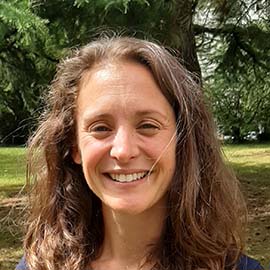
Nicki Bailey
MEAL Manager
Contact Nicki Bailey
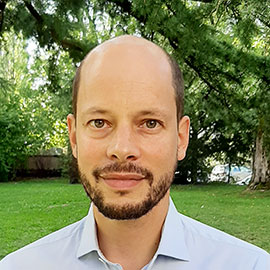
Sacha Meuter
Head of Research and Policy
Contact Sacha Meuter

